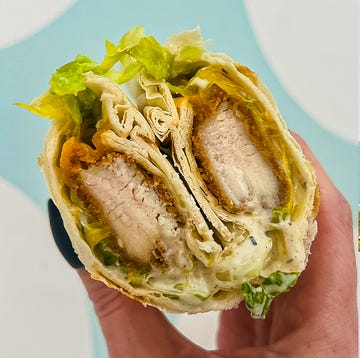In President Trump's proposed budget for fiscal year 2018, he advocated cutting $191 billion over the next decade from the Supplemental Nutrition Assistance Program (SNAP), formerly known as food stamps, and proposed charging retailers a fee in order to receive food stamps as payment.
This would impact the more than 44 million Americans who received SNAP benefits last year, though Trump's goal, as stated in the budget, is to reduce the number of Americans receiving assistance in general. To qualify for SNAP, recipients annual income must be below $15,144 for a single person or below $31,596 for a family of four.
"The Budget proposes a series of reforms to SNAP that close eligibility loopholes, target benefits to the neediest households, and require able-bodied adults to work," the proposal reads.
The SNAP authorized retailer application fee would supposedly result in a $252 million deficit reduction in 2018, with similar reductions expected each year through 2027. While the fee might be negligible to large corporations like Walmart or Target, it would likely cause a strain on smaller grocery stores and bodegas that serve poor neighborhoods.
"Certainly, they would see it in their bottom line," Brian Lang of the nonprofit The Food Trust told CNBC. "Implementing cuts to that extent are going to have stark consequences for retailers, especially in low-income communities."
The Office of Management and Budget told CNBC the fee would be assessed when stores sign up and based on the retailer's size and type, and would require renewal after five years. While the office didn't specify how the costs would be calculated, an official from the OMB described the fees to CNBC as "modest" and "reasonable."
It's unlikely Trump's budget will pass as is, and many parties, from the National Grocers Association to individuals who rely on SNAP, have expressed concerns about the food program cuts and retailer fee.
This coincides with a program the U.S. Department of Agriculture is testing this summer, which allows seven online grocery stores, including Amazon, to accept food stamps. While not outlined in the proposal, if passed, these online retailers would presumably have to pay the fee too.
This is one of several food-related proposals Trump has made thus far that have received mixed feedback, including scaling back school lunch nutritional requirements.
Follow Delish on Instagram.













